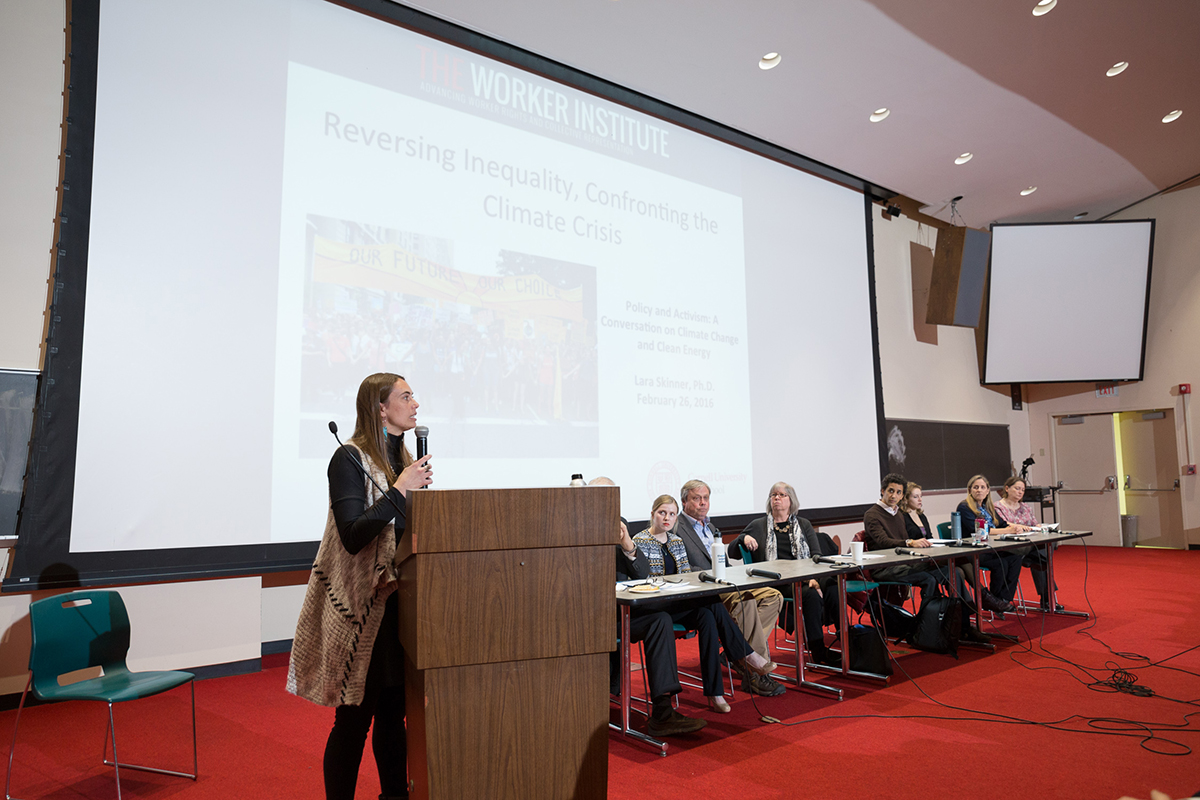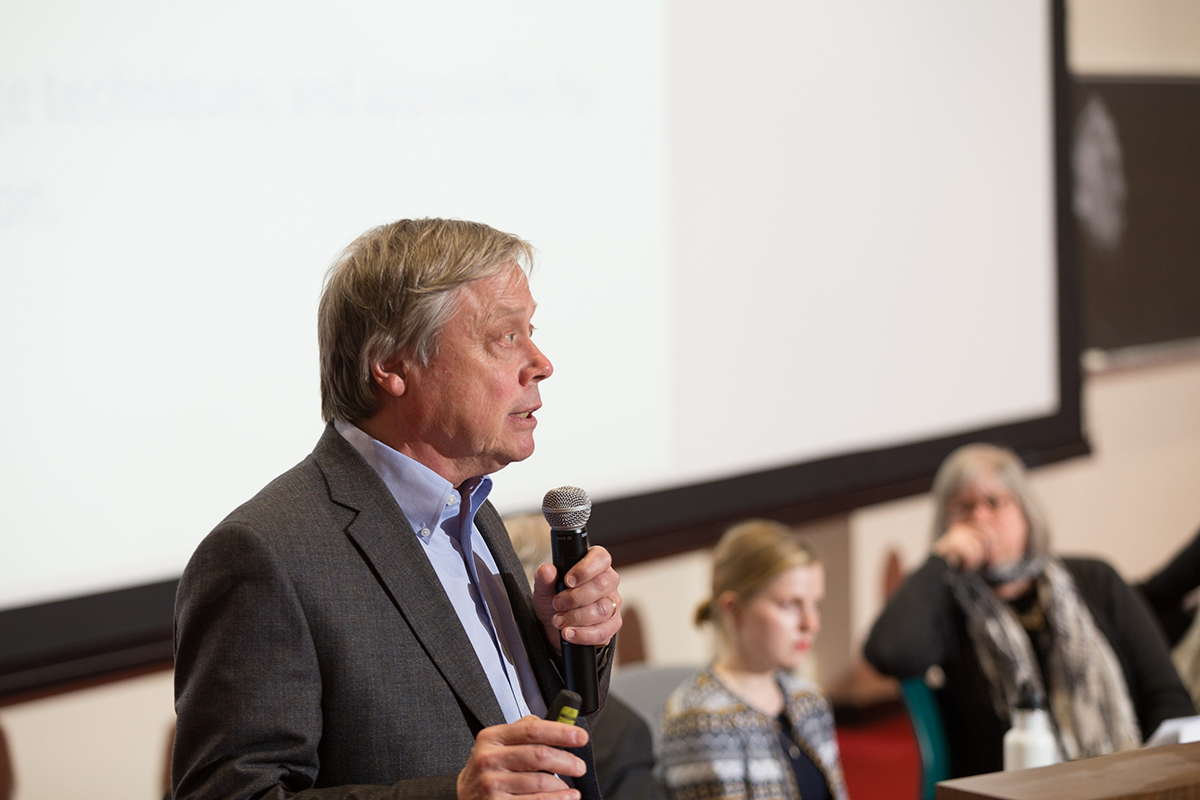In staving off climate change, social landscape adjusts
By Blaine Friedlander


At the intersection of activism and academia, a climate change and clean energy panel gave details of environmental urgency and impending social refinements. The Feb. 26 panel included Cornell researchers, alumnae, New York Assembly representatives and sustainability advocates, and was hosted by student-led KyotoNow! Cornell.
“We can … actually make our society more socially equitable and socially just,” said Lara Skinner, associate director for Cornell’s Worker Institute. “It’s the cultural, political and social struggles that we face … the greatest social crisis of our time,” she said, noting how environmental changes resulting from a warming climate will modify the social science landscape.
As the U.S. enacts agreements made at the 21st United Nations Climate Change Conference of the Parties (COP21) in December 2015 in Paris, Skinner said that New York state can lead the country to societal equity in a low-carbon economy. “The impacts [of climate change] will not be felt equally,” she said. “Women, people of color, children, the elderly, workers, immigrants, communities of color will all be affected disproportionately by the impacts of climate change,” in the job market and the economy.
Discussing the 2016 Worker Institute at Cornell report, “A Climate Jobs Program for New York State,” Skinner said, “A climate jobs program for New York state that includes the establishment of a ‘just transition’ task force could ensure a fair and equitable transition to a new, clean energy economy.”
Skinner said because New York has led major challenges in the past – the New Deal, for example – the state is well-suited to promote jobs and reduce climate change impact. “New York state can take the lead in adopting a bold and ambitious climate jobs plan that addresses the crises of inequality and climate change head on,” she said.
Steve Englebright, D-Setauket, chair of the New York State Assembly Climate Change Work Group and chair of the Assembly’s Environmental Conservation Committee, said not having working partners to shepherd climate-related bills through the state Senate is an impediment.
Robert Howarth, the David R. Atkinson Professor of Ecology and Environmental Biology, had a pointed message: reduce methane.
“The bottom line is that shale gas is far worse than any of the other [greenhouse gases] – it’s even worse than conventional natural gas,” he said.
Forty percent of U.S. natural gas use is from shale and is predicted to grow, he said, increasing concentrations of methane, the by-product of natural gas extraction. “It has a demonstrable effect on global warming we’re seeing now. It’s taking us in the wrong direction,” Howarth said. “We need to reduce our methane. Roughly half of our natural gas is used for in-home and commercial-building heating,” he said.
Greenhouse gas carbon dioxide remains in the atmosphere a long time, while methane can be more easily reduced. “The low hanging fruit is to get gas and oil out of our basements – and substitute them with high-efficiency heat pumps,” Howarth said. “We need to move very rapidly away from fossil fuels, and we particularly need to move away from natural gas and shale gas.”
Media Contact
Get Cornell news delivered right to your inbox.
Subscribe